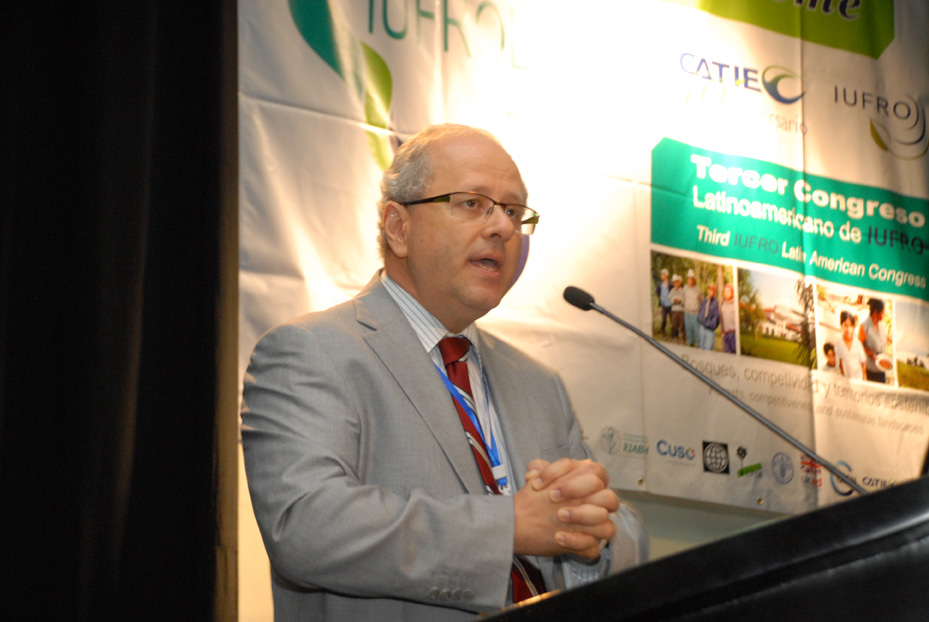IUFROLAT III Keynote Address by Eduardo Mansur, FAO
Challenges and Opportunities for Sustainable Forest Management in a Changing Context
Wednesday, 12 June 2013
The first keynote speaker at IUFROLAT III was Eduardo Mansur, Director of FAO’s Forest Assessment, Management and Conservations Division. He talked about “Challenges and Opportunities for Sustainable Forest Management in a Changing Context”.
First, however, he conveyed greetings from Eduardo Rojas Briales, Assistant Director-General and Head of the Forestry Department, Food and Agriculture Organization of the United Nations, on whose behalf he was giving this presentation.
Mansur started by asking what the world should be like in 2050, when the world’s population is estimated to have exceeded 9 billion people.
Pressure on natural resources and the need for food will have increased tremendously by that time. He identified the following major challenges:
1) Food
2) Energy
3) Climate Change
In order to respond adequately to these, which are in fact closely interrelated, he explained various necessary approaches such as the landscape approach. He also underlined the big potential of restoration for improving the environmental situation without affecting food security.
In view of these challenges, the main objectives of FAO are:
1) Eradication of hunger
2) Elimination of poverty and strengthening of economic and social progress
3) Sustainable management of natural resources
Part of the response to these challenges is better governance of resources and more social participation. Integration and inter-sectorial approaches are key here. This is also especially true for forest research, which needs a more integrated approach.
Mansur explained concepts and tools that FAO has worked with so far and will continue to use in the future, such as the concept of sustainability, the forest resources assessment (FRA), criteria and indicators, etc.
In conclusion, he identified communication and social networks as a key tool to change people’s often blurred conceptions especially with regard to forest management. Science and research are essential here as they can provide the data and knowledge which will help to do away with erroneous perceptions and trade-offs between biodiversity and forest use, for example.

